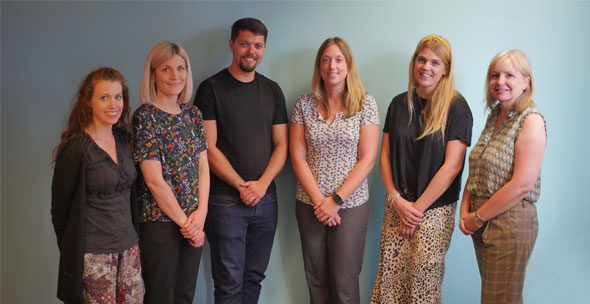Disulfiram (Antabuse) was used to treat cells from different brain tumours in the lab, with leading scientists finding it could effectively kill high-grade glioma cells without harming healthy cells.
The research, largely funded by The Brain Tumour Charity, identified the drug may have this anti-cancer effect in paediatric gliomas by reducing a protein that promotes tumour growth called MLL1.
While further studies are needed, experts hope the findings could be advanced into trials within five years to assess whether disulfiram may offer a new and well-tolerated treatment option for children diagnosed with a glioma.
Brain tumours are the most common cancer in children, with around 500 children and young people being diagnosed each year in the UK.
Despite small improvements in recent years thanks to research progress, the disease remains the biggest cancer killer of children and adults under 40 in the UK and malignant brain tumours result in 27 life years being lost on average, the highest of any cancer.
In recent years, there has been significant interest among cancer scientists about the potential of repurposing alcohol abuse drug disulfiram (also known as Antabuse) following pre-clinical studies showing that it may be able to target different kinds of cancer cells, including lung, prostate and ovarian cancer.
In a new study led by Dr David Michod, researchers at the Samantha Dickson Brain Cancer Unit at University College London (UCL) treated different types of paediatric cancer cells with disulfiram. They saw that the drug efficiently killed the cancer cells within 48 hours at doses that could be feasible to give to human patients.
Next, they investigated why this was happening. One of the hallmarks of brain cancer is the ability of the tumour cells to retain their ‘stemness’, meaning they never mature into functional brain cells and can just keep growing.
Dr Michod’s team saw that disulfiram degraded an oncogene, called MLL1, which produces enzymes that are known to be present in high levels in paediatric gliomas.
Further investigation indicated that the loss of MLL1 resulted in a loss of the cancer cell’s ‘stemness’ allowing the body’s natural defences to kill the cells.
The researchers also found that by adding another drug called auranofin (a compound of gold that has previously been shown to enhance the effect of disulfiram in treating ovarian cancer cells), the disulfiram treatment was even more effective.
In addition to the promising effects seen in aggressive cancer cells, the team also found that low-grade brain tumour cells exhibited even greater sensitivity to the treatment, indicating disulfiram could also offer a new and kinder approach to treatment for children with slow-growing, low-grade tumours.
The research is published in Cell Death and Disease and was funded by The Brain Tumour Charity and the Olivia Hodson Cancer Fund.
Dr David Michod, lead researcher at UCL, said:
“Our study showed that disulfiram can effectively kill paediatric glioma cells paving the way for it to be repurposed as a potential new treatment for children.
“Current therapy for paediatric brain cancer is primarily based on chemotherapeutic compounds, which can often have serious side effects in children.
“The repurposing of well-tolerated drugs such as disulfiram is therefore of particular interest for the treatment of this disease.
“With disulfiram already safely used in treating alcoholism, we hope to move our recent discoveries rapidly to the clinic to find out if it can benefit children with a brain tumour as soon as possible.“
Dr David Jenkinson, Chief Scientific Officer at The Brain Tumour Charity, which funded the study, said:
“These are really promising findings that offer hope of a new and kinder option for children diagnosed with hard-to-treat gliomas.
“Brain tumours remain the biggest killer of children and the largest cause of preventable blindness and we urgently need to find new treatments to reduce the harm the disease causes for so many.
“It’s exciting that disulfiram was not only able to target aggressive paediatric glioma cells but had an even greater effect in treating slow-growing tumours which can cause severe long-term health problems for children that do survive.
“We now look forward to further research to exploit this discovery and help repurpose disulfiram as a potential new treatment that could be advanced into clinical trials for children affected.
“Any children, young people or families affected by a brain tumour can get in touch with our dedicated Children and Families Service 0808 800 0004 for practical or emotional support or to connect with others going through similar experiences. We’re here for you.”

Need some support?
Our Children & Families team offers support to children, young people and families affected by a brain tumour diagnosis. We’re here to help with any information you might need, answer your questions, listen and provide support.
